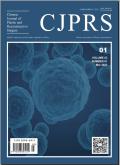黑素细胞痣治疗的历史与展望:文献计量学分析
Chinese Journal of Plastic and Reconstructive Surgery
Pub Date : 2023-12-01
DOI:10.1016/j.cjprs.2023.10.001
引用次数: 0
摘要
黑素细胞痣主要通过完全或部分切除来治疗。然而,预测黑素细胞痣恶性转化的风险以及患者应该接受哪种治疗,手术或非手术治疗,以获得最佳效果和美观效果是有争议的。方法使用Web of Science Core Collection数据库对1997年至2022年间发表的关于黑素细胞痣治疗的全球文献进行扫描。使用Microsoft Office Excel、CiteSpace V、VOSviewer、Scimago Graphica、Bibliometrix、Biblioshiny等软件包进行文献计量学分析,总结该领域的主要国家、机构、教授和研究趋势。结果纳入文献1 723篇。在过去的20年里,出版物和引用呈现出积极的趋势。在这一全面的全球合作网络中,美国拥有最富有成效的组织和出版物,而中国最近是最活跃的主要参与者之一。h指数、g指数和m指数在该领域排名第一的Giovanni Pellacani教授发明了利用反射共聚焦显微镜的虚拟活检。此外,Krengel和Kinsler对黑素细胞痣的诊断和治疗也做出了重要贡献。近年来排名前25位的关键词多为痣恶性转化的机制及危险因素。结论明确基因型-表型和基因型-预后的相关性,选择合适的治疗方法,降低恶性转化的风险,同时达到最佳的美容效果是黑素细胞痣治疗的未来趋势。本文章由计算机程序翻译,如有差异,请以英文原文为准。
History and prospect of melanocytic nevus treatment: A bibliometric analysis
Background
Melanocytic nevus is mainly treated by complete or partial removal. However, predicting the risk of malignant transformation of melanocytic nevi and which treatment patients should receive, surgical or non-surgical management, to gain the best results and aesthetic outcomes is controversial.
Methods
Global literature on melanocytic nevus treatment, published between 1997 and 2022, was scanned using the Web of Science Core Collection database. Microsoft Office Excel, CiteSpace V, VOSviewer, Scimago Graphica, Bibliometrix, and Biblioshiny packages in R were used for the bibliometric analysis to summarize the leading countries, institutions, professors, and research trends in this field.
Results
This study included 1 723 articles. Publications and citations exhibited positive trends over the past 20 years. The United States had the most productive organizations and publications in the comprehensive worldwide cooperation network, and China was recently one of the most active major participants. Professor Giovanni Pellacani, whose H-index, G-index, and M-index ranked first in this field, founded a virtual biopsy using reflectance confocal microscopy. In addition, Krengel and Kinsler contributed significantly to diagnosing and treating melanocytic nevi. The top 25 keywords in recent years were mostly about the mechanisms and risk factors for the malignant transformation of nevi.
Conclusion
The future trend for melanocytic nevi treatment is to specify genotype-phenotype and genotype-outcome correlations, choose proper therapy to reduce the risk of malignant transformation, and simultaneously achieve the best aesthetic outcomes.
求助全文
通过发布文献求助,成功后即可免费获取论文全文。
去求助
来源期刊

Chinese Journal of Plastic and Reconstructive Surgery
Surgery, Otorhinolaryngology and Facial Plastic Surgery, Pathology and Medical Technology, Transplantation
CiteScore
0.40
自引率
0.00%
发文量
115
审稿时长
55 days
 求助内容:
求助内容: 应助结果提醒方式:
应助结果提醒方式:


